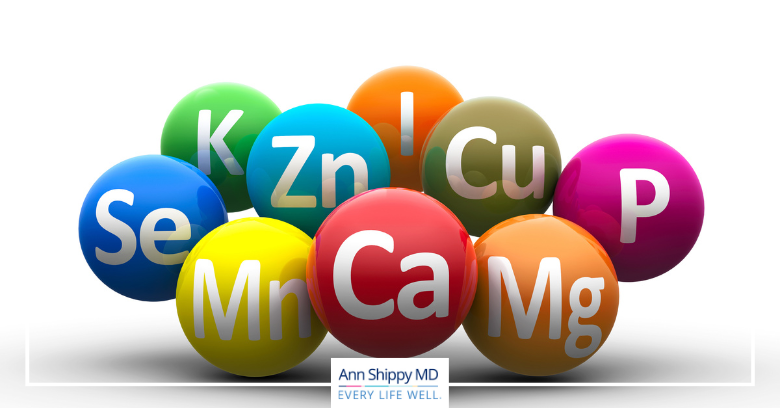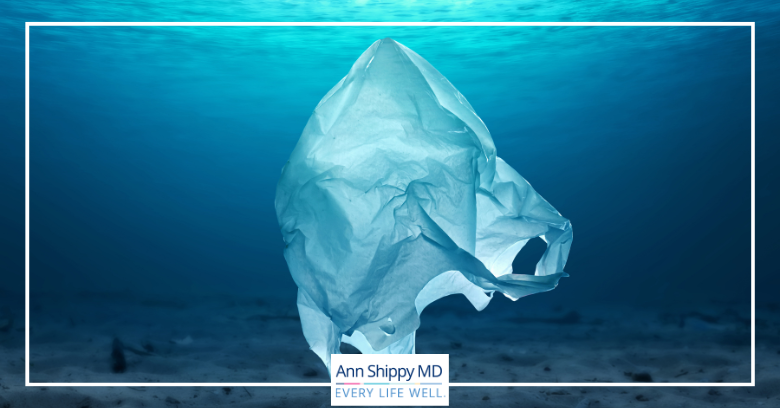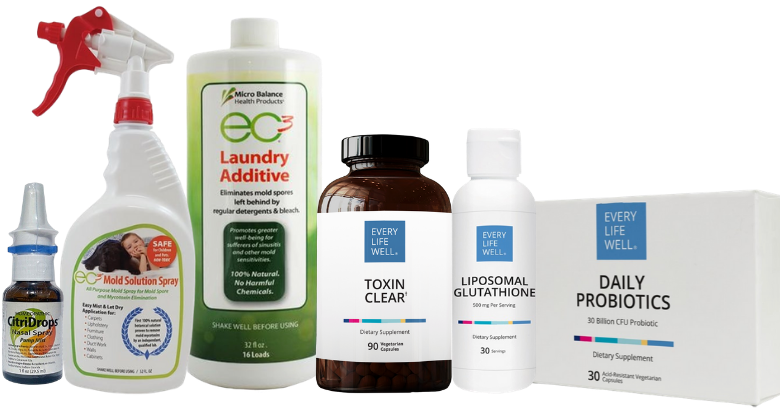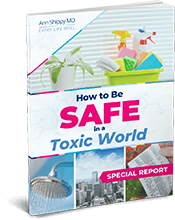A Mineral-Rich Diet Provides Protection From Heavy Metals
We often discuss ways to avoid and protect ourselves from environmental toxins.
Today, however, we are going to focus on what to add in.
Of course, it is best to prevent exposures to toxins in the first place, but what about the toxins that we can’t avoid or are unaware of?
In the case of heavy metals like lead, mercury and cadmium, knowledge of the likely sources help us to avoid exposures.
In addition, it is important to know the sources for essential minerals we can include in our diets help to protect us from the heavy metals that do make their way into our digestive system through what we eat or drink.
Minerals are a heavy metal insurance policy; one we need to have in place.
In today’s article, you will learn more about:
- Essential dietary minerals
- How minerals provide protection against heavy metals
- The specific case of the mineral selenium and the heavy metal mercury
- How to increase minerals in your diet and reap the benefits
- Bonus: Extra Mineral Salt recipe
Essential Minerals
Essential minerals, or dietary minerals, come from the earth and can’t be made by humans or other organisms. Plants absorb minerals from the soil and animals eat plants, concentrating minerals in their own tissues.
We obtain minerals by eating both plants and animals in our diet.
Essential minerals include:
- Calcium
- Iron
- Magnesium
- Selenium
- Potassium
- Manganese
- Iodine
- Zinc
- Copper
- Chromium
- Molybdenum
- Phosphorus
- Sodium
Consuming enough minerals and having adequate stores in the body is critical for optimal health.
The role of minerals in the body are well-known.
Minerals are required for:
- Bone health
- Oral health
- Blood pressure and circulation
- Brain function
- Hormone balance
- Metabolic health
- Immune health
- Cell signaling and communication
- Detoxification
Minerals may serve another, lesser-known function, one that is important in our modern environment: minerals help protect the body from heavy metals.
Heavy Metal Exposures And Protective Effects Of Minerals
Chemically heavy metals are similar to essential minerals, however heavy metals don’t have a biological role in the body, instead they cause toxic effects.
High concentrations of heavy metals circulating in the environment is largely due to human industry.
Heavy metal toxicity is a modern health concern.
Examples of how we are exposed to heavy metals include: through the water and food we consume, the air we breathe, and cosmetics we use on our skin and other consumer products.
It’s been discovered that heavy metals are also carried through the environment bound to microplastics and released in our digestive tracts.
Mercury, lead, cadmium, aluminum, arsenic and other heavy metals affect organs and systems throughout the body, contributing to chronic disease.
Heavy metals are linked to neurological problems, developmental issues, learning delays, cancer, inflammation, metabolic dysregulation and more.
Heavy metals act as pseudo minerals in the body, taking the place of essential minerals and interfering with metabolic processes.
In the small intestine, heavy metals compete with minerals for absorption. Some heavy metals rely on the same transporters to make their way from the digestive tract into the body and blood stream.
When heavy metals are absorbed instead of minerals, it can lead to mineral deficiencies.
Conversely, mineral deficiency could lead to more uptake of heavy metals.
Here are some examples of this connection:
- Iron deficiency increases the absorption of lead, cadmium and arsenic
- Low calcium and zinc levels increase lead absorption
- Low calcium increases aluminum absorption
Once in the body, heavy metals also compete with minerals for transportation throughout the body and into cells.
The good news is that eating a rich supply of essential minerals as part of the daily diet causes more competition for the heavy metals and displaces them.
They may pass through the digestive system without being absorbed in the first place.
Mercury And Selenium
One heavy metal of concern is mercury, and for good reason. Among other things, mercury is toxic to the brain, immune system and kidneys.
Humans are exposed to higher levels of mercury than ever before directly through the environment, mercury dental fillings and the consumption of fish and seafood.
The mineral, selenium, helps protect the body against mercury.
One source of selenium is seafood itself. It is interesting how nature has built in this protection.
Selenium reduces mercury toxicity by counteracting the adverse effects of mercury.
One way that mercury causes harm is because it binds to selenium, preventing selenium from its important roles in the brain and body, such as glutathione synthesis and thyroid hormone activation.
Interestingly, most species of fish contain more selenium than mercury.
When this molar ratio of selenium to mercury is greater than one, it is considered protective.
Larger fish and sea mammals such as sharks and whales, may have a molar ratio of less than one and are of greater concern regarding mercury. Since mercury accumulates in seafood over time, it is still advised to eat smaller and younger fish.
How To Increase Minerals In Your Diet
By increasing minerals in your diet, you offer more protection from heavy metals that unknowingly make their way into your body.
Basic nutrition becomes quite protective and is more essential than ever given the exposures we face today.
Here’s how to increase minerals and gain all their wonderful benefits:
1. Focus on food. Food is your best medicine and a natural source of minerals.
Here are some mineral-rich Paleo foods to add to your grocery list (consume organic as much as possible, grass-fed, pasture-raised animal proteins, and wild-caught fish):
- Selenium – Brazil nuts, organ meat, red meat, fish and seafood
- Calcium – Sardines, bok choy, collard greens, tahini, almonds, broccoli, kale, oranges, bone broth, seaweed, nettles
- Iron – Red meat, shellfish, organ meat, leafy green vegetables
- Magnesium – Cashews, spinach, chard, almonds, avocado, hazelnuts
- Potassium – Potato, sweet potato, dried apricots, prunes, acorn squash, banana, spinach, artichoke, avocado
- Manganese – Pineapple, pecans, almonds, spinach, sweet potato, green tea
- Iodine – Seaweed, fish, seafood
- Zinc – Oysters, grass-fed beef, crab, dark meat poultry, pumpkin seeds, sunflower seeds
- Copper – Liver, shellfish, cashews, sunflower seeds, hazelnuts, mushrooms, dark chocolate
- Chromium – Broccoli, grass-fed beef, turkey, potatoes, green beans, apple
As you can see, by eating a variety of vegetables, fruit, meat, poultry, seafood, nuts, seeds, sea vegetables and herbs, you’ll create a solid foundation of minerals in your diet.
2. Add in supplements. Minerals in food are dependent upon minerals in the soil, which have been depleting over time due to modern agricultural practices. Because of lower mineral content in food, combined with increased mineral needs to block heavy metals and support detoxification, supplementation may be warranted.
Most people will benefit from supplementing with a daily multivitamin multimineral, additional magnesium and adding in a mineral-rich superfood powder.
- Test your minerals. A micronutrient analysis, such as One FMV Panel from Genova, or the NutrEval test from Genova is helpful for identifying functional nutrient deficiencies. In other words, it looks at your body’s unique nutrition needs and identifies what minerals (and vitamins, antioxidants and other compounds) your body would benefit from more of. Use this information, along with guidance from your Functional Medicine healthcare professional, to make targeted diet and supplement changes.
- Optimize vitamin D. It’s well known that vitamin D is needed for calcium absorption, but other minerals are dependent upon vitamin D as well. These include zinc, iron, selenium, copper and magnesium. Improving vitamin D status, helps to improve absorption of these minerals and their protective effect against heavy metal absorption.
Increasing vitamin D without adequate minerals, however, may increase the absorption of heavy metals including aluminum, cadmium and lead.
Be sure to focus on both minerals and vitamin D!
Most of us in the United States require vitamin D supplementation in addition to sun exposure to maintain adequate blood levels.
Ask your doctor to check your vitamin D status and adjust supplementation as required.
Recipe For Extra Mineral Salt
Sea salt is rich in trace minerals and can be enhanced with just a couple simple ingredients to provide more minerals to your daily diet. Use this salt as you would sea salt in cooking or as a finishing salt at the table.
Ingredients
- 1/4 cup Pink Himalayan or sea salt
- 1 tablespoon kelp flakes
- 1 tablespoon dried nettles (stinging nettles)
- ½ teaspoon garlic powder
Directions
- Place the kelp flakes and dried nettles into an electric coffee grinder and grind briefly until they turn into a powder.
- Mix the kelp and nettle powder with sea salt and garlic powder. Store in a glass jar with a tight lid.
Minerals are nature’s protection.
Many modern health concerns have a component of mineral deficiency.
Working to restore mineral status provides protection against chronic disease and environmental toxins, namely heavy metals.
With a little thought, it is easy to increase minerals throughout the day by choosing a variety of whole foods, thoughtful supplements and a sprinkling of sea salt at the table.
References
- https://www.ncbi.nlm.nih.gov/pmc/articles/PMC4427717/
- https://www.ncbi.nlm.nih.gov/pmc/articles/PMC1533267/
- https://pubmed.ncbi.nlm.nih.gov/22917764/
- https://pubmed.ncbi.nlm.nih.gov/21507392/
- https://pubmed.ncbi.nlm.nih.gov/25947386/
- https://pubmed.ncbi.nlm.nih.gov/17916947/
- https://www.ncbi.nlm.nih.gov/pmc/articles/PMC4539504/
- https://www.sciencedirect.com/science/article/pii/S1018364722000465













